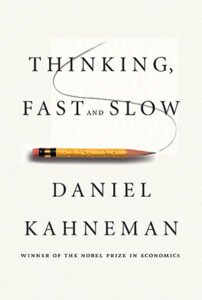|

|
Thinking, Fast and Slow:
…the financial benefits of self-employment are mediocre: given the same qualifications, people achieve higher average returns by selling their skills to employers than by setting out on their own.
|
257 |
|
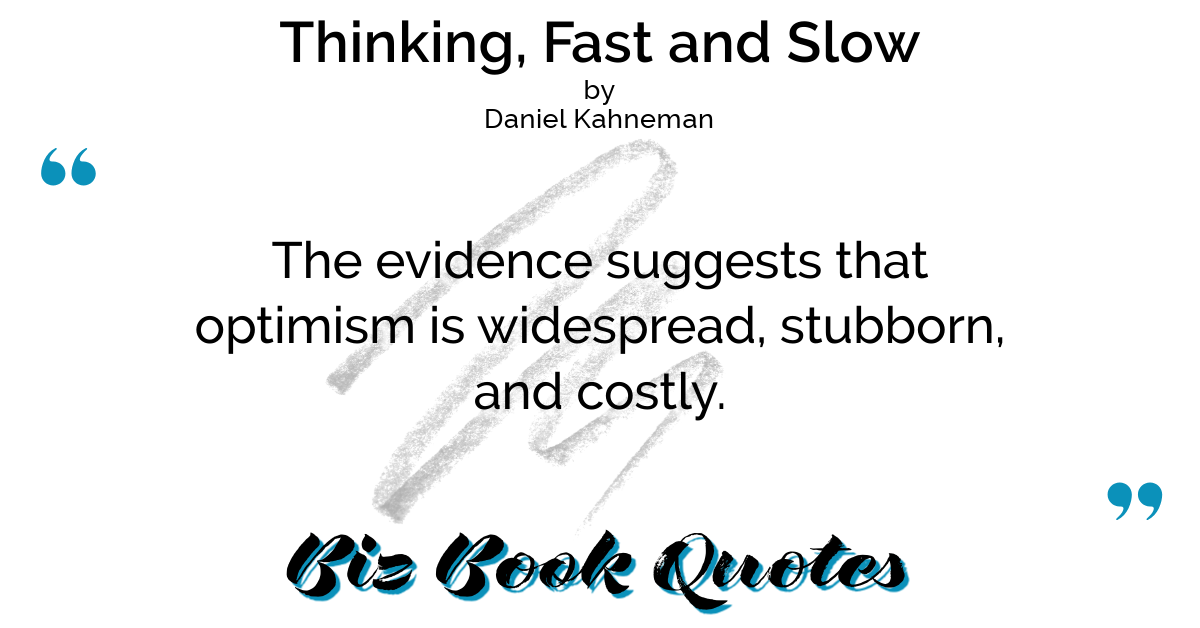
|
Thinking, Fast and Slow:
The evidence suggests that optimism is widespread, stubborn, and costly.
|
257 |
|
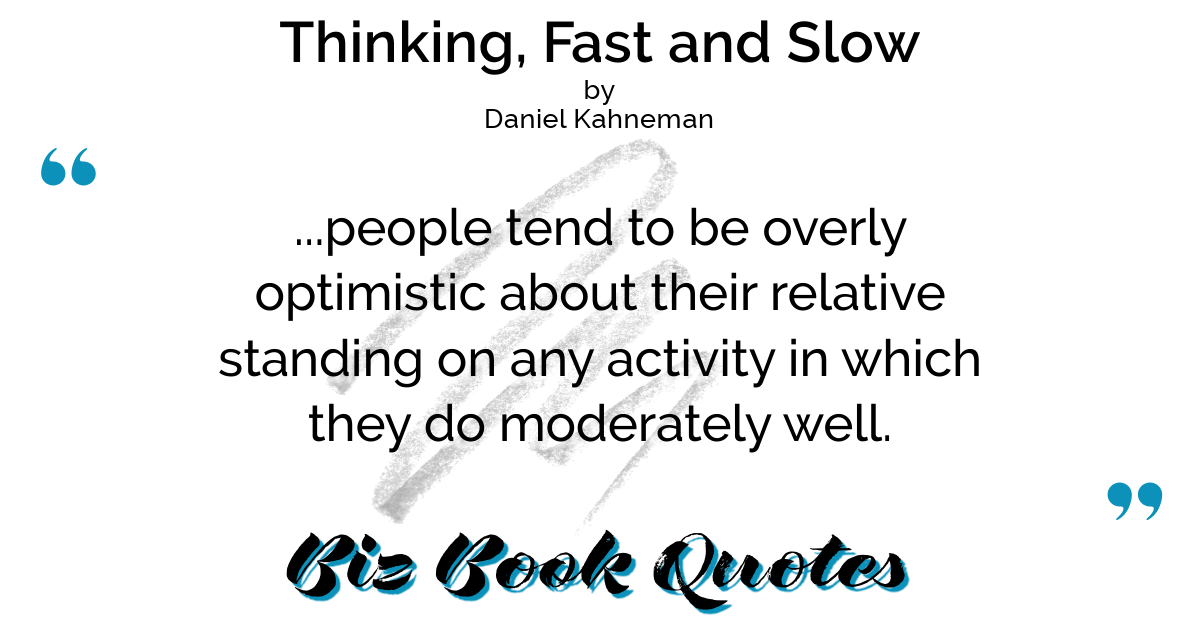
|
Thinking, Fast and Slow:
…people tend to be overly optimistic about their relative standing on any activity in which they do moderately well.
|
260 |
|

|
Thinking, Fast and Slow:
…the outcome of a start-up depends as much on the achievements of its competitors and on changes in the market as on its own efforts.
|
260 |
|
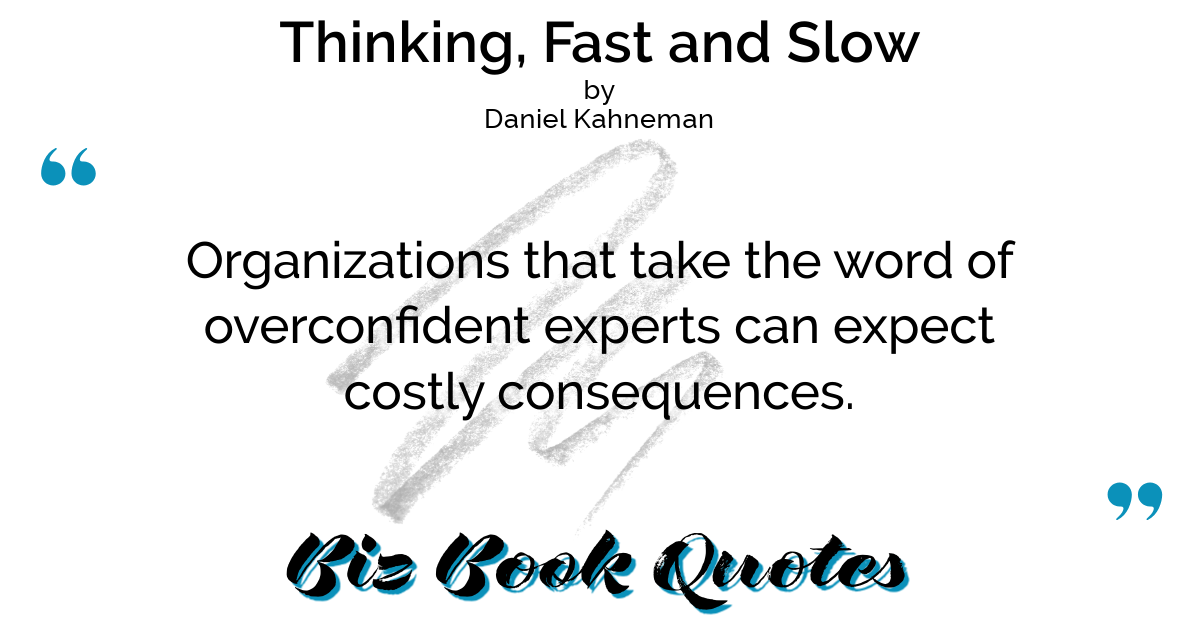
|
Thinking, Fast and Slow:
Organizations that take the word of overconfident experts can expect costly consequences.
|
262 |
|
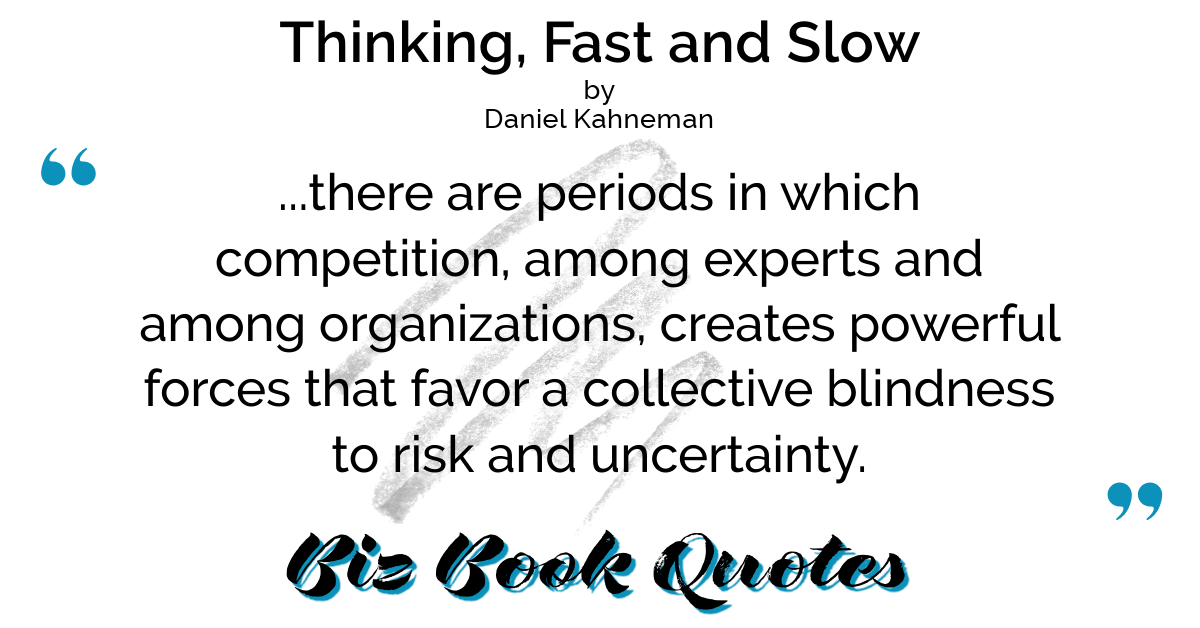
|
Thinking, Fast and Slow:
…there are periods in which competition, among experts and among organizations, creates powerful forces that favor a collective blindness to risk and uncertainty.
|
262 |
|
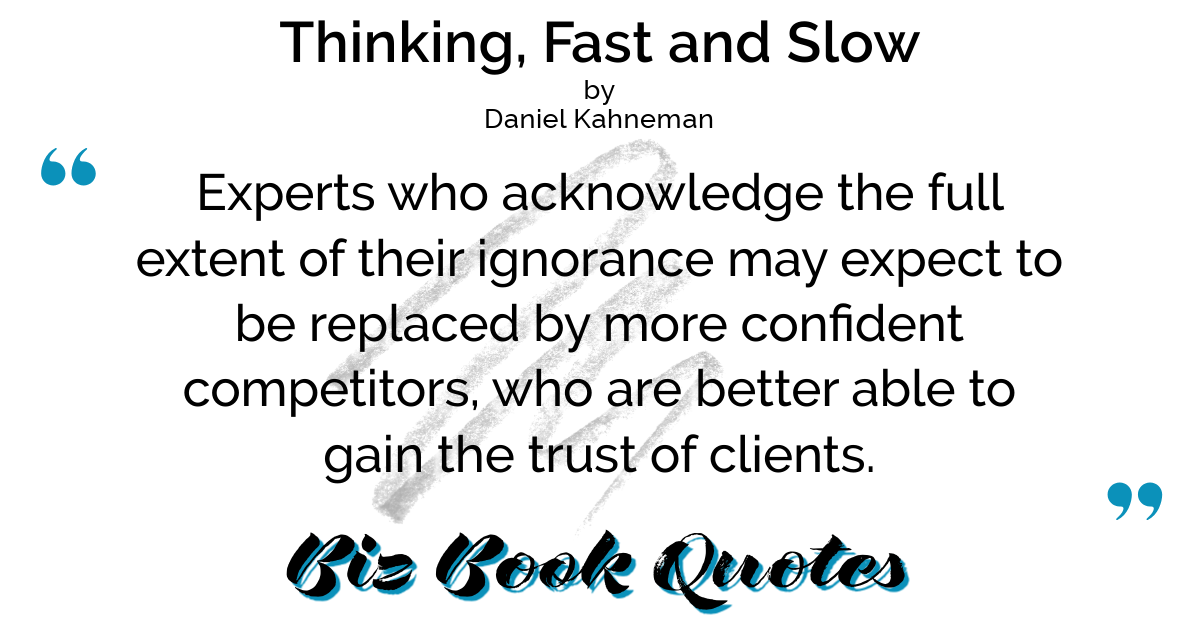
|
Thinking, Fast and Slow:
Experts who acknowledge the full extent of their ignorance may expect to be replaced by more confident competitors, who are better able to gain the trust of clients.
|
263 |
|
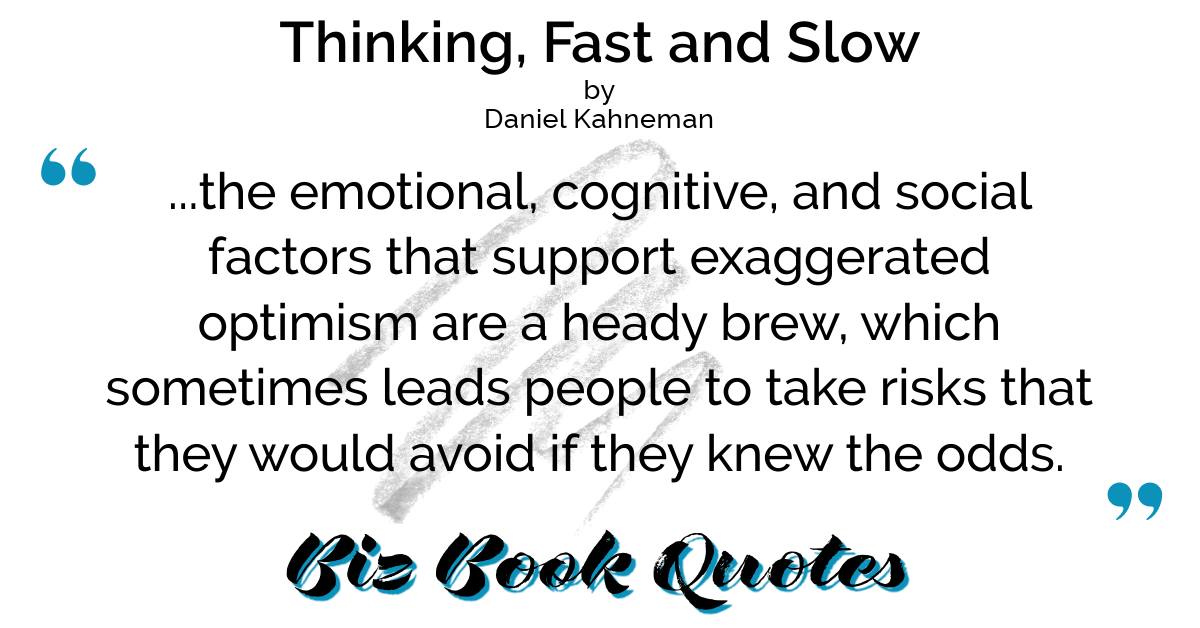
|
Thinking, Fast and Slow:
…the emotional, cognitive, and social factors that support exaggerated optimism are a heady brew, which sometimes leads people to take risks that they would avoid if they knew the odds.
|
263 |
|
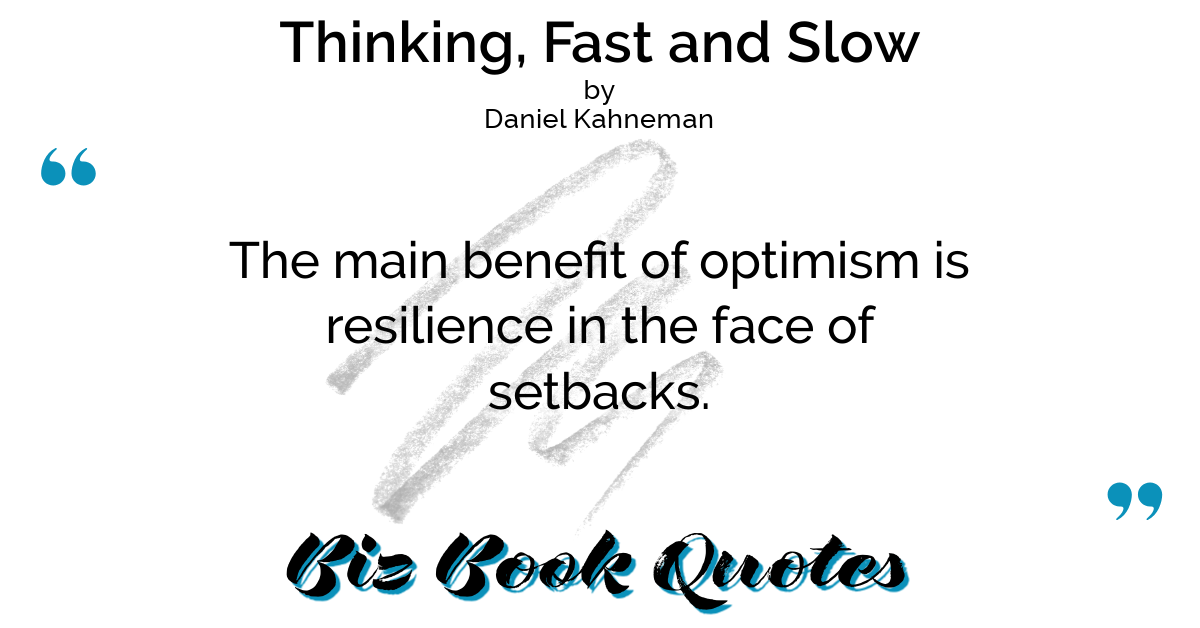
|
Thinking, Fast and Slow:
The main benefit of optimism is resilience in the face of setbacks.
|
263 |
|

|
Thinking, Fast and Slow:
Every significant choice we make in life comes with uncertainty – which is why students of decision making hope that some of the lessons learned in the model situation will be applicable to more interesting everyday problems.
|
270 |
